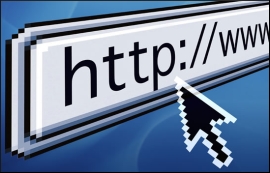|

|
Online ads get in your face amidst money crunch
|
|

|
|
| Top Stories |
 |
|
|
|
Andy Goldberg | 14 Mar, 2009
Online advertising has suffered almost as much as its print and broadcast siblings from the global economic implosion. But now some of the most important players in the field are fighting back.
Google announced Wednesday the start of advertising that uses web-tracking technologies to calculate a user's interest and target tailor-made ads to the individual.
In a related move, the Online Publishers Association said it was debuting three new ad formats designed to overcome the growing propensity of web surfers to simply ignore the banner ads that are supposed to provide the lion's share of online income.
Until now, Google's ads have worked in two ways. The search-affiliated product ads work by serving up ads that are related to the search terms entered by users of Google's ubiquitous search engine. Google also offers ads through affiliated partners on its Adsense program, which automatically analyses the content of the websites and serves ads related to that content.
Google's new system makes the ads more personal - which offers both advantages and disadvantages.
"We believe there is real value to seeing ads about the things that interest you," Google's VP of Product Management Susan Wojcicki wrote on the Official Google Blog.
But because Google's plan uses cookies to track users' Internet trails, it immediately raised the hackles of privacy advocates.
Google notes that no personal identifying information is attached to the cookies and that it also allows users to opt out of the new advertising model. But for those who see the online search giant as the Big Brother of the 21st century, the assurances that the all-knowing Google will use its knowledge of your intimate web habits only for your own good is a little too good to be true.
"Google might well hype their targeting system as a boon to pet owners, but the reality is that the service will track just about everything you do and everything you're interested in, no matter how personal or sensitive," Privacy International head Simon Davies told the BBC.
Yet most web users will probably be more put out by the intrusion made by the super-sized ad formats adopted by the Online Publishers Association. The new ads will be bigger and bolder, more obtrusive and interactive, and will run on sites owned by 27 of the top publishers on the Internet - including the New York Times, CNN, CBS Interactive, ESPN and the Wall Street Journal - who collectively reach two-thirds of the US Internet audience.
The idea is to get the attention of Web surfers who have learned to ignore the banner ads that occupy the prime real estate at the top of most web pages. But the trick will be to do so in a way that does not overly alienate the audience as the notorious pop-up ads did in the years of the dot com boom.
Publishers hope the new formats will allow advertisers to be more creative with their content and advertisers have no doubt that something is needed to shake up the present system.
"A large-scale intrusive format is absolutely necessary in today's market," said Adam Kleinberg, chief executive of Traction, a San Francisco ad agency. "With the economy the way it is, marketers are demanding a return on investment in every campaign."
|
|
|
| |
|
|
|
|
|
|
|
|
|
|
|
|
|
|
| |
| Customs Exchange Rates |
| Currency |
Import |
Export |
US Dollar
|
₹91.2
|
₹89.5 |
UK Pound
|
₹123.35
|
₹119.35 |
Euro
|
₹107
|
₹103.35 |
| Japanese
Yen |
₹57.9 |
₹56.1 |
| As on 22 Jan, 2026 |
|
|
| Daily Poll |
 |
 |
| What is your primary "Make or Break" expectation from the Finance Minister this year? |
|
|
|
|
|
| Commented Stories |
 |
|
|
|
|
|
| |
|